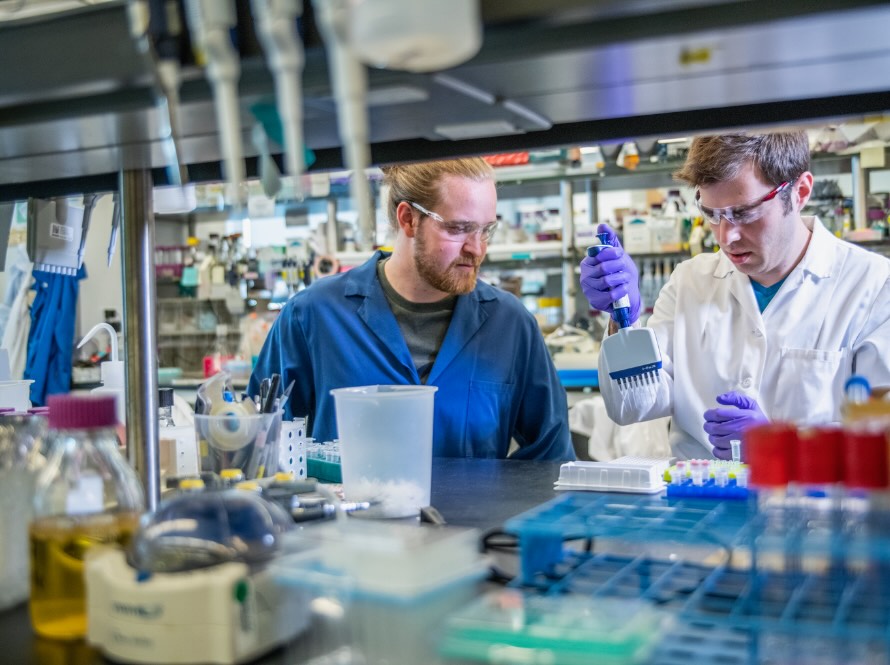
1 May 2025
Biomanufacturing is a type of production that harnesses the molecular machinery in microbes, cells, and plants to produce a variety of valuable compounds. This approach enables efficient biomanufacturing of products that are traditionally made in limited quantities or using environmentally unfriendly practices, and to make entirely new molecules with exciting properties, such as innovative fuels, chemicals, foods, medicines, materials, and even rocket fuel.
U.S. biomanufacturing is currently estimated to add more than $210 billion to the economy every year, and this number will likely increase as more bioproducts are developed.
Berkeley Lab scientists are celebrated experts in all facets of biomanufacturing, from the first stage of designing host organisms, up to the final work of refining production processes at the pre-pilot and pilot scale, which are important steps on the way to industrial scale. Read on to learn about five of our strengths in this rapidly evolving field.
[Image]
Two scientists working on biological samples at JBEI, a DOE Bioenergy Research Center managed by Berkeley Lab.
